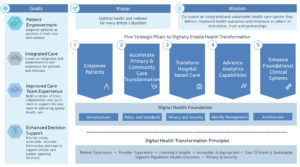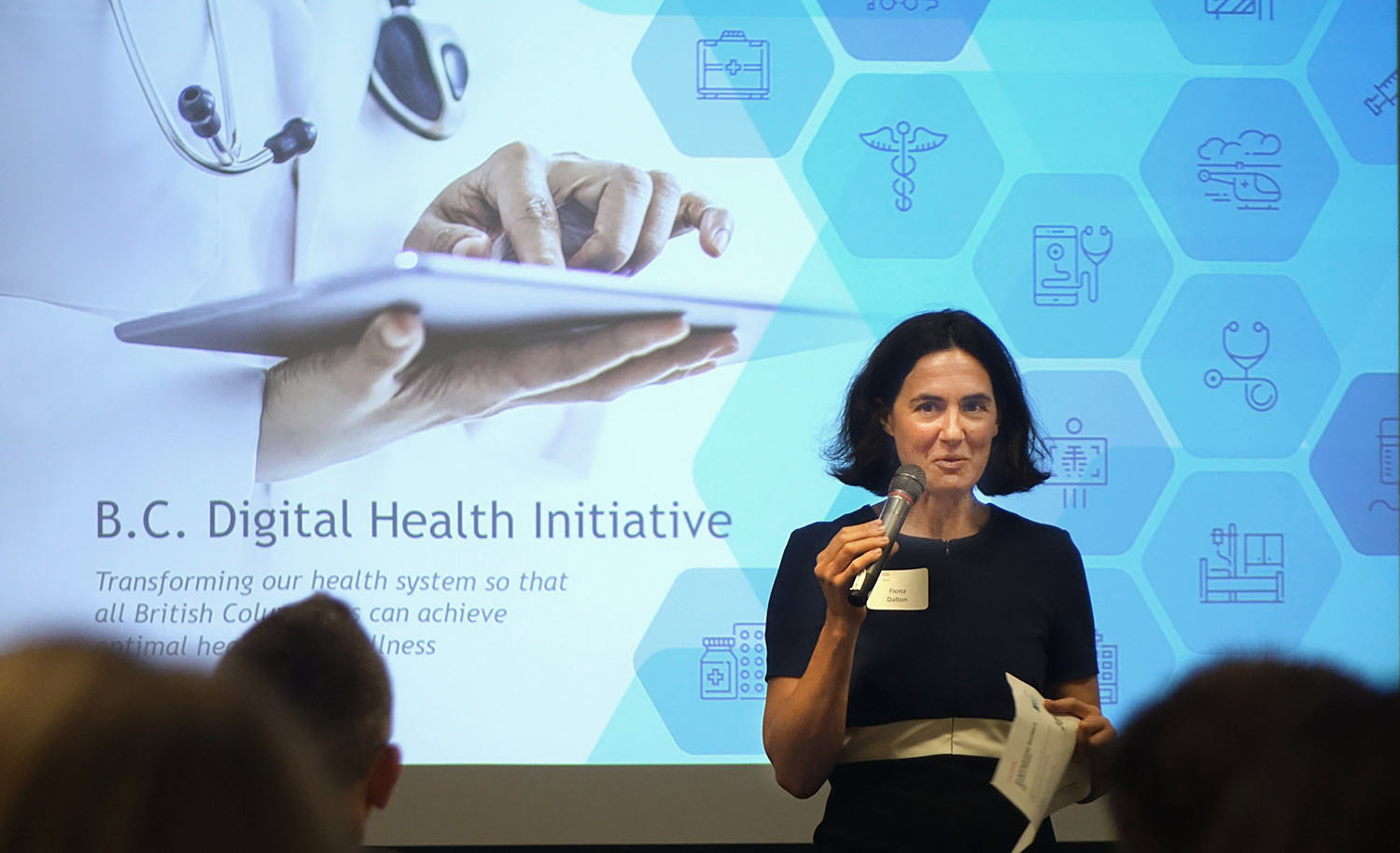“It doesn’t matter what tools you are using, you can connect to peers and patients”
The digitization of health information is essential for us to have a sustainable health care system that can continue to provide British Columbians with quality care moving forward, says Dr. Douglas Kingsford, Chief Medical Information Officer for BC’s Provincial Digital Health Initiative.
Dr. Kingsford was a keynote panelist at the May 30 interactive ‘Distinguished Speakers’ dinner event hosted by the PHC Physicians and Surgeons Association (PASS) PIVOT Subcommittee. Providence physicians and CEO Fiona Dalton were joined by partners including Doctors of BC and Pathways to discuss BC’s plans for developing its digital health capabilities. It was one of many opportunities that Providence will have to collaborate and align the organization’s needs, including its vision for the new St. Paul’s, with provincial and regional plans.
Dr. Kingsford, along with other panel guests, Dr. Damian Claydon-Platt – Chief Clinical Information Officer for VCH, PHC, and PHSA, and Brian Simmers – Chief Financial Officer for Providence, discussed the landscape in BC where, like in other provinces, digital health is fragmented. Health authorities, hospitals and community providers are often duplicating efforts and using systems and tools that aren’t linked together.
The Ministry of Health’s new strategy and governance for digital health across BC, along with the consolidation of regional IMIT services within PHSA, will change that. A coherent plan with short and long-term goals – and extensive collaboration among partners – will organize needs, streamline, modernize and link technologies together, and break down silos to ensure that everyone is working together to get more value for efforts. Ultimately, it will accelerate digital health capabilities in BC in a way that was not possible in the past.
A digital health ecosystem: an end to silos
Given the complexity of the health care system, there will not be a single digital health system for BC. Instead, a digital health ‘ecosystem’ will be created where data can move across the boundaries of multiple systems and vendors. “So it doesn’t matter what tools you are using, you can connect to peers and patients,” says Dr. Kingsford.
Improving the exchange of clinical information will not only transform hospital-based care, it will support BC’s shift to increase comprehensive, team-based care in the community through Primary Care Networks. To be successful, physicians and multidisciplinary providers all need to be on the same page. Among other improvements, this shift aims to reduce preventable hospital visits.
Part of BC’s digital health strategy also includes ‘getting on top of’ the explosion of direct-to-patient health empowerment tools, devices and apps in the marketplace – and determine how those fit into the medical landscape.
Importantly, there will be room for grassroots innovation to surface within the larger ecosystem. For example, if a group of physicians has an idea or need, there will be a way to propose, test and/or move it forward within the provincial/regional structure.
What’s next?
Over time, as digital health evolves, physicians will start to see changes in areas such as patient information systems, secure texting communication, digital access to care, advanced QI data and analytics, medical technologies and artificial intelligence. All will transform care and how patients and providers experience the system.
Meanwhile, it is still early days. Health authority and technology partners, physician and patient groups, and others will collaborate around the path forward. As a start, physicians at the PHC May 30 event focused on providing feedback to Dr. Kingsford to help inform near-term actions. They explored physician ‘pain points’ and improvements needed, and answered questions about what priorities should be tackled first.
Moving forward, PASS PIVOT will continue to provide opportunities for PHC physicians and leaders to engage in these discussions as they evolve, and support Providence to represent our needs and perspectives in the collaborative process along the way. Stay tuned.
 |
 |
 |
 |
 |
 |



